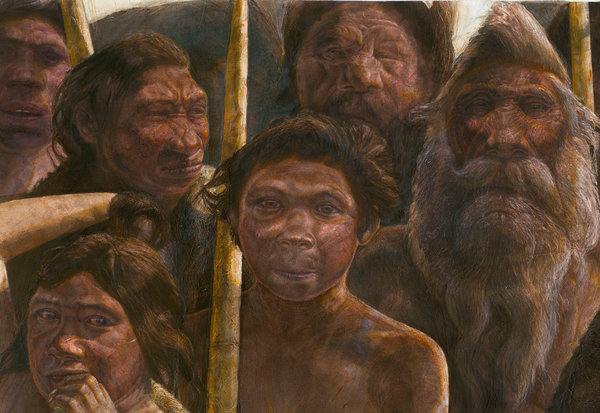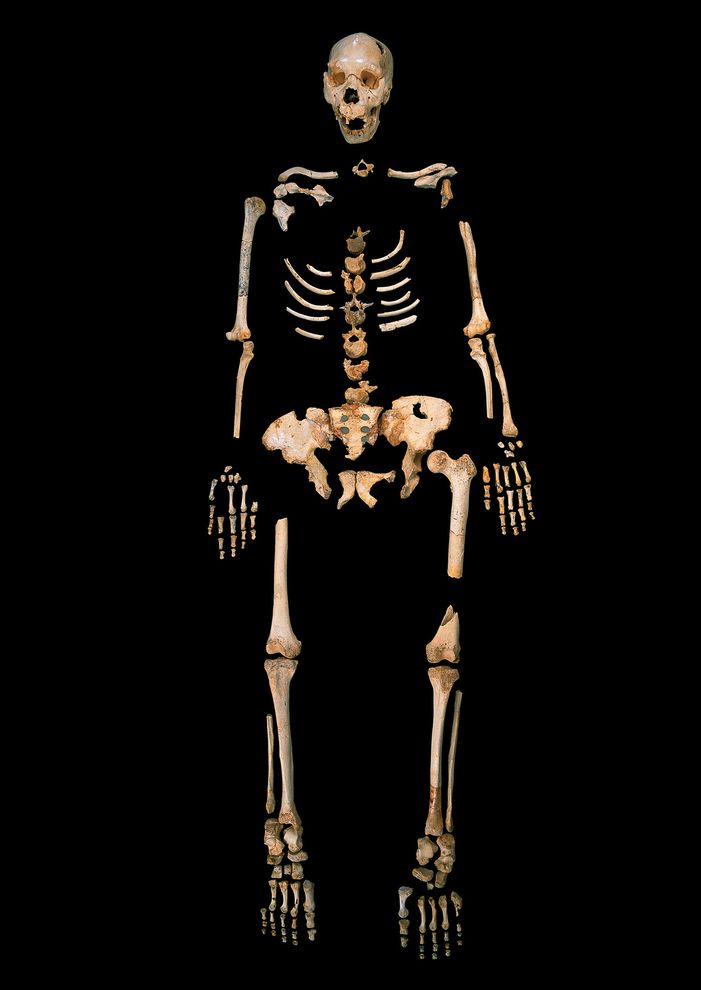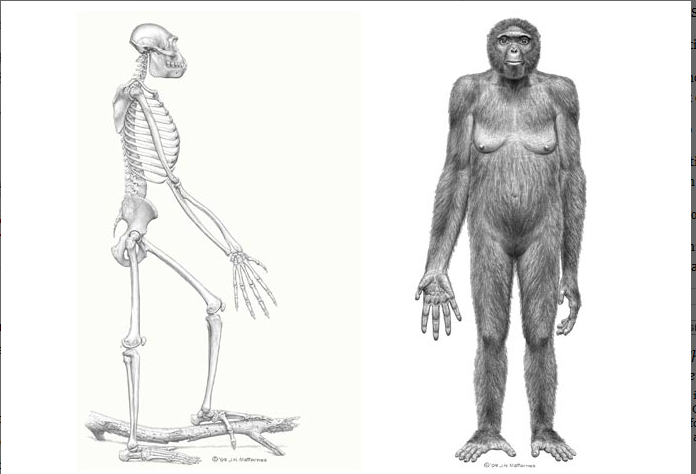It looks like you're using an Ad Blocker.
Please white-list or disable AboveTopSecret.com in your ad-blocking tool.
Thank you.
Some features of ATS will be disabled while you continue to use an ad-blocker.
2
share:
This new discovery just brings to realization of how far we have come in understanding man's history, BUT continues to create so many more questions
of just how we lived, migrated, interacted over 100,000's of thousdands of years.
Just a fascinating read for those interested, and how we continue to find new evidence of man, our interaction with Neanderthals and our traverse across the continents.


The fossil, a thigh bone found in Spain, had previously seemed to many experts to belong to a forerunner of Neanderthals. But its DNA tells a very different story. It most closely resembles DNA from an enigmatic lineage of humans known as Denisovans. Until now, Denisovans were known only from DNA retrieved from 80,000-year-old remains in Siberia, 4,000 miles east of where the new DNA was found.

One of the mysteries that has scientists interested and shaking their heads is the close DNA mapping of the Denisovans located in Siberia indicating that they had lived there about 41,000 years ago, but only in that area of Siberia,
One of the fascinating observations was
It was just back in 1996 that Scientists excavating in the dusty Middle Awash region of Ethiopia have unearthed an amazingly complete skeleton of a new species of hominid -- an ancestor to modern man -- which they have named Ardipithecus ramidus, nicknamed "Ardi".

List of Source Documentation:
Journal of Science
NY Times Science
National Geographic Daily News
Daily Tech Story of 'Ardi'
Just an exciting time in human history and trying to put the puzzle of man, it's beginning and how we got to where we are today together.......I have a feeling there is still a lot we just don't know and many more surprising finds that will shake current day paradigms. Enjoy!!
Just a fascinating read for those interested, and how we continue to find new evidence of man, our interaction with Neanderthals and our traverse across the continents.
Hints at new hidden complexities in the human story came from a 400,000-year-old femur found in a cave in Spain called Sima de los Huesos (“the pit of bones” in Spanish). The scientific team used new methods to extract the ancient DNA from the fossil.
“This would not have been possible even a year ago,” said Juan Luis Arsuaga, a paleoanthropologist at Universidad Complutense de Madrid and a co-author of the paper.

Scientists have found the oldest DNA evidence yet of humans’ biological history. But instead of neatly clarifying human evolution, the finding is adding new mysteries.

The fossil, a thigh bone found in Spain, had previously seemed to many experts to belong to a forerunner of Neanderthals. But its DNA tells a very different story. It most closely resembles DNA from an enigmatic lineage of humans known as Denisovans. Until now, Denisovans were known only from DNA retrieved from 80,000-year-old remains in Siberia, 4,000 miles east of where the new DNA was found.
The mismatch between the anatomical and genetic evidence surprised the scientists, who are now rethinking human evolution over the past few hundred thousand years. It is possible, for example, that there are many extinct human populations that scientists have yet to discover. They might have interbred, swapping DNA. Scientists hope that further studies of extremely ancient human DNA will clarify the mystery.

One of the mysteries that has scientists interested and shaking their heads is the close DNA mapping of the Denisovans located in Siberia indicating that they had lived there about 41,000 years ago, but only in that area of Siberia,
found in the remote Denisova Cave in the Altai Mountains in Siberia, a cave which has also been inhabited by Neanderthals and modern humans.
One of the fascinating observations was
The mismatch between the anatomical and genetic evidence surprised the scientists, who are now rethinking human evolution over the past few hundred thousand years. It is possible, for example, that there are many extinct human populations that scientists have yet to discover. They might have interbred, swapping DNA. Scientists hope that further studies of extremely ancient human DNA will clarify the mystery.
“Right now, we’ve basically generated a big question mark,” said Matthias Meyer, a geneticist at the Max Planck Institute for Evolutionary Anthropology in Leipzig, Germany
It was just back in 1996 that Scientists excavating in the dusty Middle Awash region of Ethiopia have unearthed an amazingly complete skeleton of a new species of hominid -- an ancestor to modern man -- which they have named Ardipithecus ramidus, nicknamed "Ardi".

The find began in 1994 with the unearthing of a hominid hand. One and a half decades later, Ardi was revealed in her full form, a skeleton consisting of over 125 bone pieces. Among the most complete hominid skeletons found to date, Ardi is approximately 4.4 million years old, 1.2 million years older than the famous "Lucy" (Australopithecus afarensis) skeleton. Ardi is in fact the oldest hominid found to date.
List of Source Documentation:
Journal of Science
NY Times Science
National Geographic Daily News
Daily Tech Story of 'Ardi'
Just an exciting time in human history and trying to put the puzzle of man, it's beginning and how we got to where we are today together.......I have a feeling there is still a lot we just don't know and many more surprising finds that will shake current day paradigms. Enjoy!!
Please direct your comments to this ongoing thread
400,000 year old genome from spain sequenced
Thanks
400,000 year old genome from spain sequenced
Thanks
new topics
-
Which chapter of the apocalypse is raining fish?
Jokes, Puns, & Pranks: 7 minutes ago -
Sweet Home Alabama (metal cover by Leo Moracchioli)
Music: 1 hours ago -
FBI confirms new leads connected to DNA evidence and cellphone data in disturbing killings of elderl
Other Current Events: 4 hours ago -
Moyes No Longer Blowing Bubbles
World Sports: 4 hours ago -
Breaking--Hamas Accepts New Cease Fire
Middle East Issues: 4 hours ago -
Soros, Rockefeller and Pritzker, according to a POLITICO analysis Back Palestinian protests
US Political Madness: 5 hours ago -
Tornado Obliterates Nebraska Building with Furious Anger
Fragile Earth: 5 hours ago -
They say justice is blind.
Religion, Faith, And Theology: 5 hours ago -
Liberal Democrats to Table a Motion of No Confidence in the government Tomorrow
Regional Politics: 7 hours ago -
Time Traveler Caught on Camera?
Paranormal Studies: 7 hours ago
2
